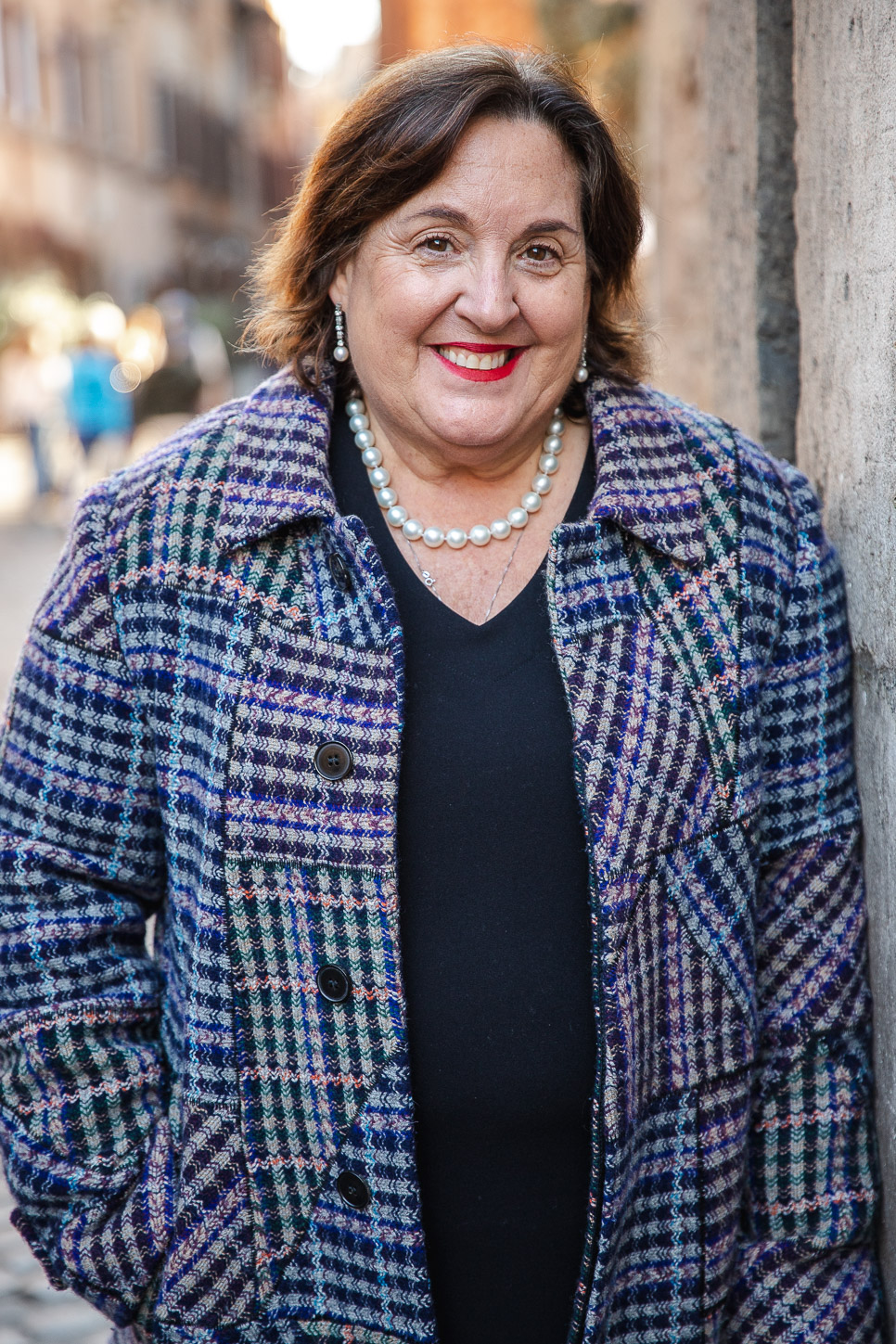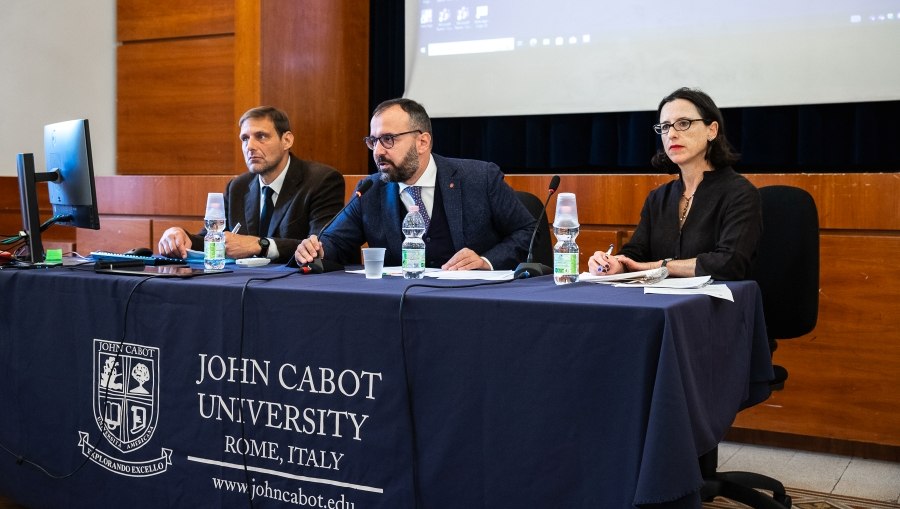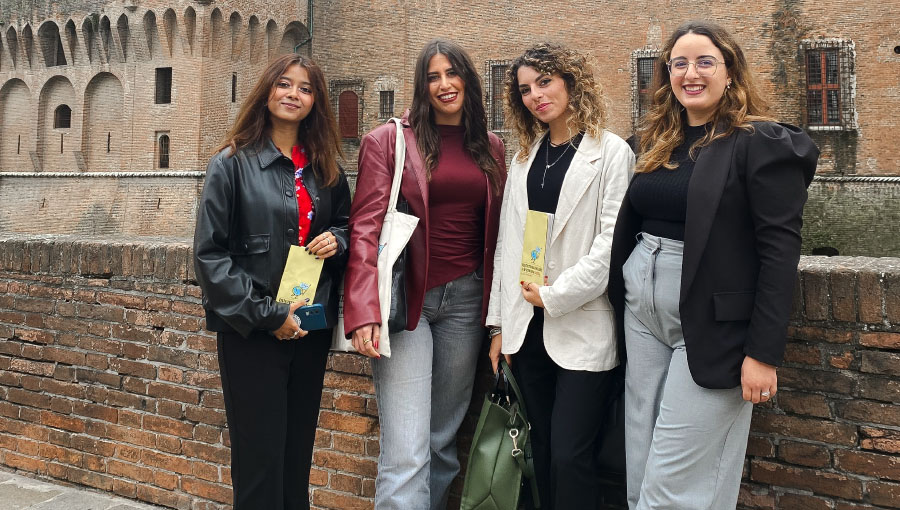Meet JCU Director of Marketing Danette Anderson
Danette Anderson is JCU’s Director of Marketing. Born in the United States but raised in Ethiopia, Danette has lived and worked in the U.S., France, the U.K., Bahrain, and Italy. She holds an M.B.A. from Henley Management College in the U.K. and has worked at JCU for over 20 years.

Tell us about your background.
Being raised in Ethiopia shaped my view of the world and prepared me to live in many countries and to be adaptable and respectful of different cultures. I have lived and worked in several places and traveled to over 80 countries for both professional and personal reasons, so I think of myself as a global citizen.
I came to Rome many times throughout the years since it is my favorite city in the world, and I finally moved here when I met my Italian husband. I began my career by teaching business after an M.B.A. at a joint Henley/Brunel program in the U.K. and landed at JCU 20 years ago when I began working as a staff member in student affairs and then in marketing and admissions.
How did you become interested in marketing? What are the rewards and challenges of being Director of Marketing at JCU?
I began working in marketing as a consultant and worked in multiple companies in Rome and the Middle East.
The rewards of being the Director of Marketing at JCU are multiple as I work with a very talented staff and get to meet young adults. Marketing at JCU is really “youth marketing,” geared towards prospective students, families, and counselors worldwide.
In an increasingly digital world, what is the key to an effective marketing strategy?
The key to an effective marketing strategy is to constantly listen to the needs of students and families, as their consumer behavior has changed significantly after COVID-19. Another challenge is to leverage technology as well as analyze and measure the outputs of every campaign and feed it back into the overall strategy, minimizing risks and maximizing financial results. An effective marketing strategy for a university is to constantly evolve in response to geo-political pressure and changes, in particular with international students. Social media and digital marketing have transformed the way we do business and I am constantly learning from students.
You have been working at JCU for over 20 years. How has the University changed over time?
When I began working at JCU there were fewer than 500 students. Since then, the University has grown and evolved significantly in terms of student services, academic offerings, facilities, and career services. JCU now has over 1,800 students and is the largest American University in Europe, with our students getting accepted to graduate programs at prestigious universities such as Harvard, Oxford, Cambridge, LSE, Bocconi, and more. I am proud to have been part of this tremendous growth in terms of student numbers and institutional quality.
What are the advantages of the American educational system? Why should students choose to come to JCU?
The American system gives students flexibility and allows them to build on their strengths. A student who is a good fit for JCU is a student who is passionate, an explorer, and who is seeking a safe space to study in an inclusive and diverse environment. Students come to JCU for the excellent professors who become mentors, and to make friends from all over the world. Many take advantage of the opportunity to do volunteer work, which allows students to give back to the local community.
I am always honored to work with our students and feel very humble when I see what they accomplish in their fields of interest and how much they give to their peers and the society around them. I like to say that I help change the world one student at a time. As someone who works in education, I can say that I learn from students I have met all over the world and I continue to learn from them, and I am in awe of the students who choose to come to JCU.
Where do you see JCU in 10 years?
I see JCU becoming an academic center of excellence where undergraduate and graduate students thrive and prepare to be global citizens who not only succeed professionally but who are proactive in promoting sustainability and intercultural dialogue.





